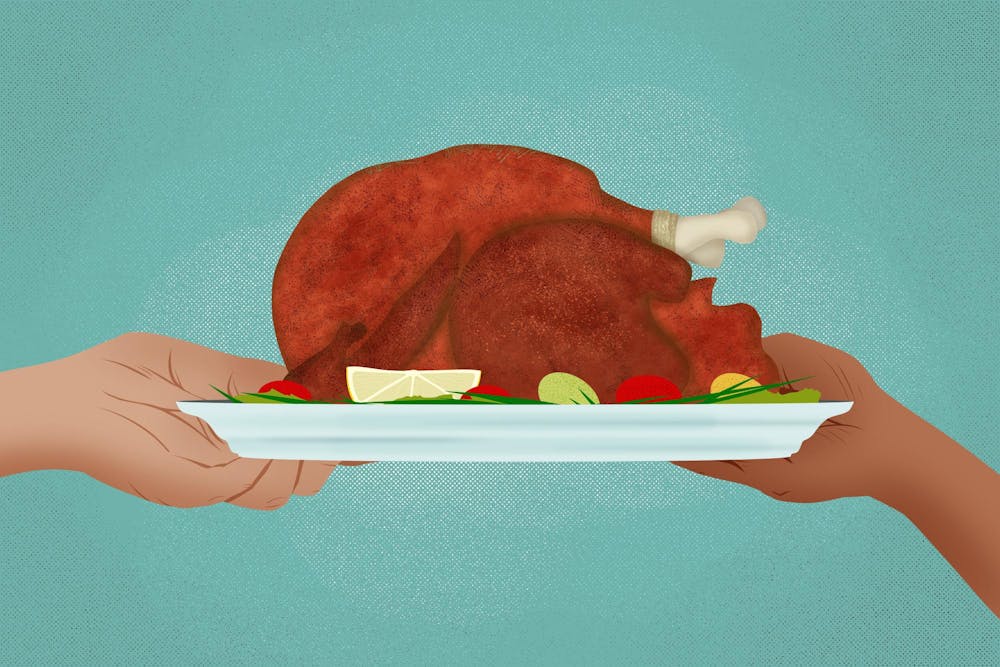When I was in elementary school, I was taught that the first Thanksgiving was a festive feast in celebration of the friendship between the Pilgrims and Native Americans — an exciting beginning to the nation’s conception. My class would spend the days before school break making hand-outlined Turkeys, listing our favorite Thanksgiving foods and watching “A Charlie Brown Thanksgiving.”
It was an uncomfortable day in middle school U.S. history when I learned that wasn’t the true story.
As opposed to the myth that Native peoples gave colonists the resources to survive and in turn were invited by the colonists to a feast, the reality was that the Wampanoag leader, Ousamequin, asked the colonists for an alliance because his people were so decimated by disease brought by the colonists that they needed a new way to protect their survival.
Also unlike how the common myth suggests, colonists did not warmly invite Native Americans to a feast. In reality, the Wampanoag people came to aid the colonists after hearing gunfire — which turned out to just be the colonists shooting their guns in the air in celebration of the feast — believing something to be wrong. When everyone realized the misunderstanding, they spent the next three days together, giving us the first Thanksgiving in 1621.
As I continued to learn more about the history of Colonist-Native relations, I grew more and more apprehensive of celebrating Thanksgiving. I felt guilty. Could I celebrate a holiday so deeply rooted in colonialism?
I wondered if I should make this sentiment known to my family, or maybe even protest Thanksgiving altogether to absolve myself of this guilt. Spoiler alert: I did neither.
Year after year, my family has never discussed the myth of the First Thanksgiving. When helping my dad with the turkey or my mom with the pumpkin pie, the conversation was about school, family and our anticipation for the meal ahead. In truth, I thought that Thanksgiving was just as much about Charlie Brown as it is about the Pilgrims.
But if Thanksgiving can be celebrated without ever mentioning the first Thanksgiving, what is it actually about?
Like many others, I understand Thanksgiving as a chance to reflect on what I’m thankful for. It brings me close to people I don’t see as often as those in my immediate group of family and friends. It’s a holiday I always find to be filled with love, joy, stories and — very importantly — delicious food.




